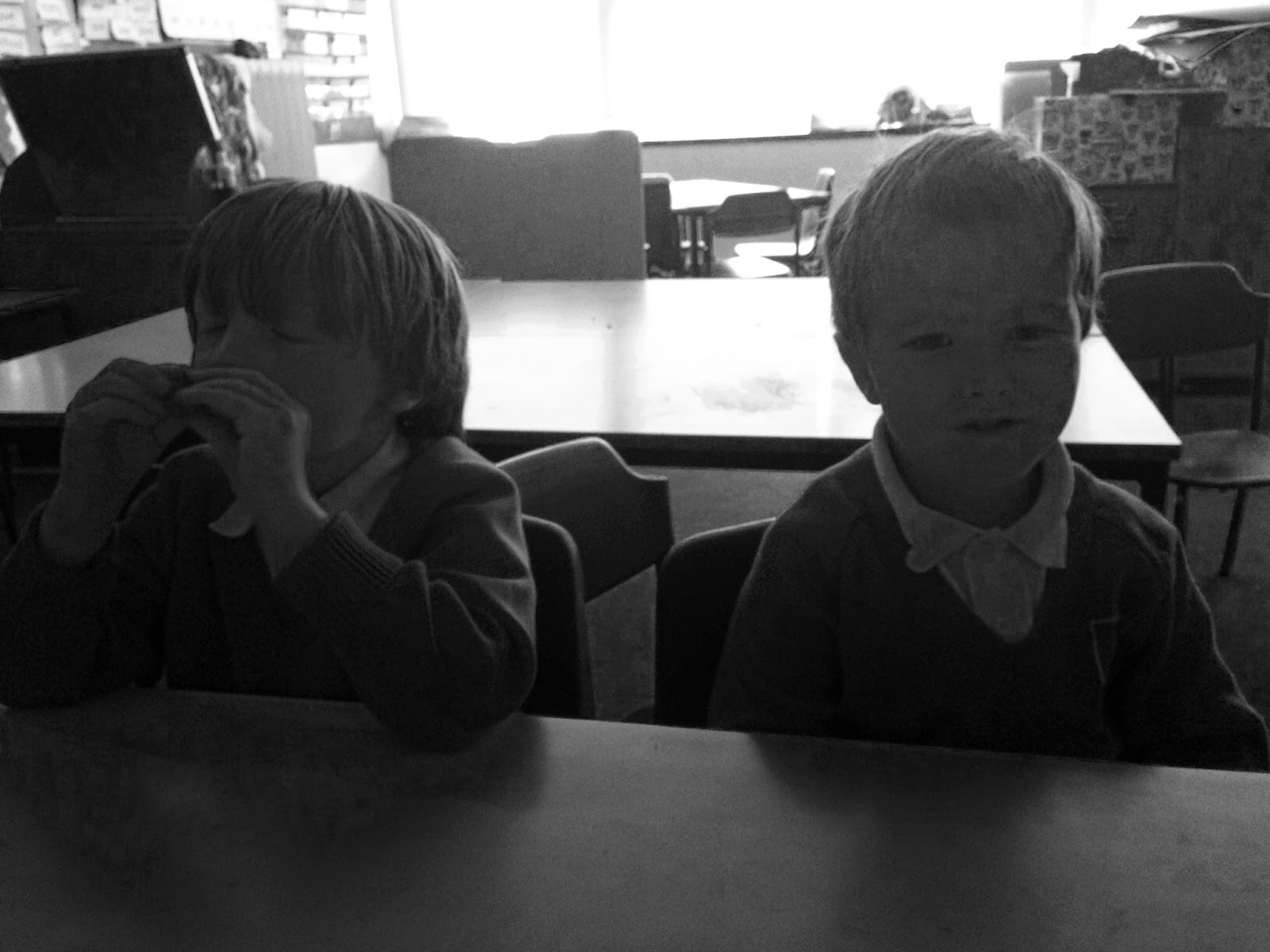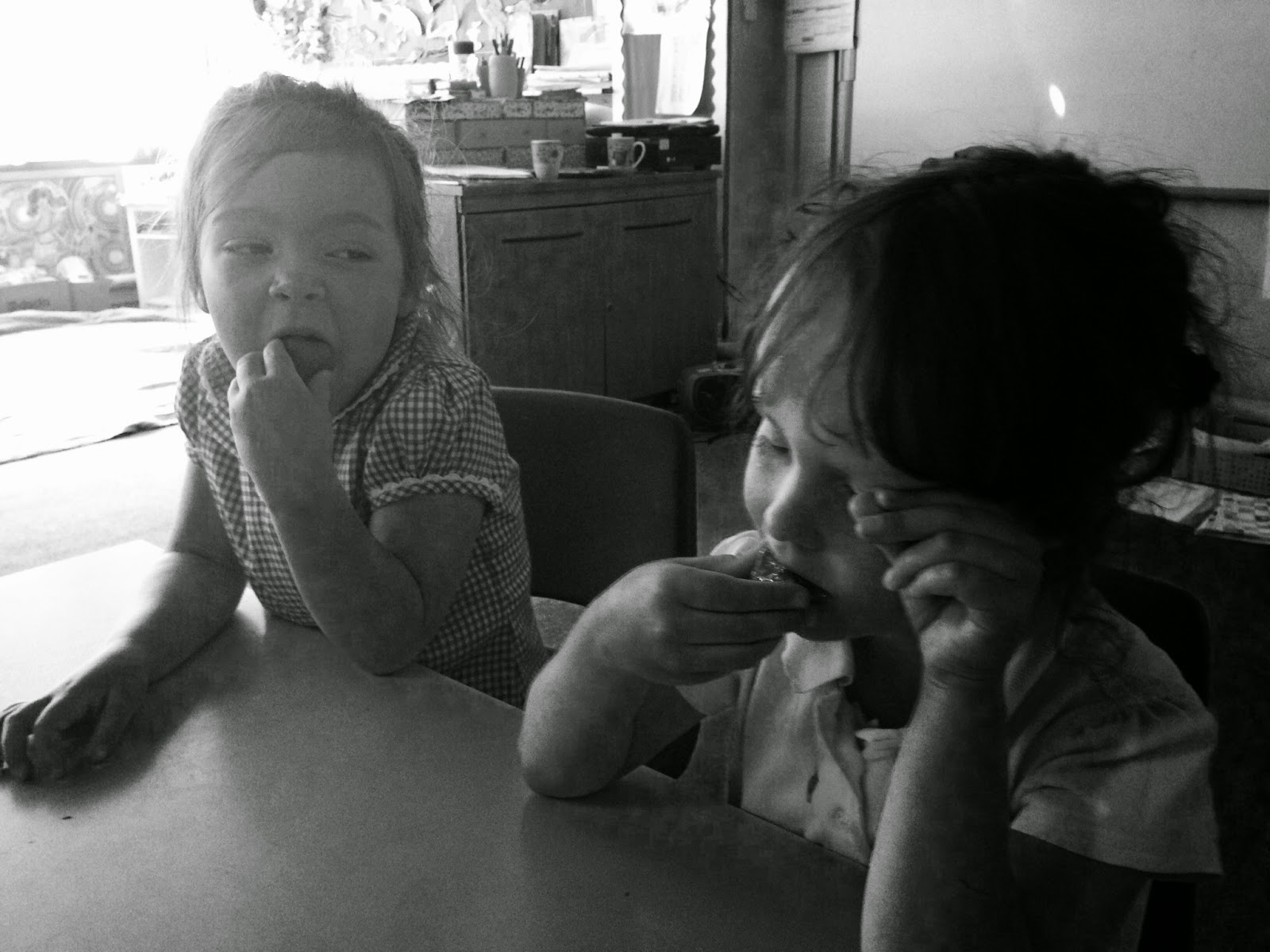I've been reading the latest reports on what's happening in our world, this week. Ebola; the conflict in Gaza; Syria; Ukraine and Russia; misguided/greedy/clueless politicians around the world making decisions affecting their country and not listening the the masses; then there's the rising obesity, cancers, poverty, famine, the global economy; the death of Robin Williams. All of the above interspersed with adverts trying to influence what car I should buy, what I should be wearing, where I should be holidaying, and how to be thin. Social commentary on facebook/twitter about the above, and the radio making sure views are adhered to. Or to give people a chance to rant about a subject. No wonder I'm feeling glum. In the time it's taken me to even type this list, I'm feeling lower than before I started.
This can't be how life is supposed to be...is it? Are we all hard-wired to strive for our own individual wants, over and above what others needs are? At what point did the human race move from looking after their basic needs - as being satisfactory to a happy life - to tearing apart someone else's to satisfy one?
I know this is not the case: the outpouring of grief over Robin William's apparent suicide has been immense, and why? Because he was a fantastically funny human being, who demonstrated his ultimate fragility. A fragility which exists inside all of us. His death has struck a chord with many.
What's happening in the middle east is becoming a prominent news feature every day, and as such is no longer hard-hitting. A couple of weeks ago, whilst eating breakfast in a hotel dining room, the TV was showing the BBC news and weather. As the news items rolled, it reported the latest death toll of the Palestinians: nobody moved. Nobody watched the item. Heads down, shovelling in their food. A moment later, and the weather forecast came on the screen: heads swivelled to watch in anticipation of how hot it was going to be, and whether raincoat or sunscreen would be required, for the day. A hush fell in the room. As soon as the report had finished, people went back to eating. How can this be? Is this English-ness? Is this apathy? Is this a tolerance thing? Is it tolerable to hear how children are dying because of an arguement over land and religion as a means to power and control? I feel the answer to this is "yes" - because we are flooded with the news all the time. We are becoming hardened to war atrocities, because it is something happening far, far away, and it doesn't affect us, at all. Does it?
You know what? It does! It bloody well does, you know. Why?
The fact that someone is more bothered about the weather in their town than fighting and killing going on in another part of the world, is a worrying symptom of how our societies are becoming disconnected with each other. My ability to continue to empathise and feel the need to help relies on my emotional intelligence, that which lights me up inside. How would I feel if I were in a refugee camp in Syria with my children? Not being able to go back to my home. How does it feel to be too scared to leave the house for fear of being raped, killed, or arrested? How does it feel to bury a child? How does it feel to lose everything in the blink of an eye? How does it feel if I forget my umbrella and it rains because I didn't listen to the weather report that day? I get wet: so what?
The thing is, it seems that there are more people who are willing to loudly complain about getting wet before they go home to shower and change into something warm and dry, than those who are shouting about the injustice in the world, and who are prepared to hold out their hand to help a fellow human being. A disproportionate power who want to seek revenge and kill, in comparison to those who are prepared to connect with themselves and others, and find out what has made them feel that urge and make a change. That's why we are all affected by apathy or a lack of empathy. I know that there are movements, campaigns, and positive ways in which social media is helping to influence societies and governments and those in power, but we need to make more of a connection with what's going on in the world, and pay attention. We are all affected in some way by the actions of others.
I was waiting to pay for my food in the supermarket a few days ago, where the store is being refurbished. It was quite busy, and there was an older couple behind me getting really cross and complaining about having to wait to pay for their trolley full of items, despite a free till which was for "baskets only". "So what?" I thought. "The man at the till is doing his job. There are a number of people walking around with baskets, and a larger number with trolleys stacked full of food".
The woman started to raise her voice in annoyance at this, referring to the "stupid idiot" at the till who had refused to serve her. I wondered whether the young assistant had heard her, and if so, how he would have felt to be insulted like this. I made eye contact with her. The woman continued to complain. I smiled as I listened, then said, "Ah well...never mind. Let it go! There are worse things going on in the world, right now! A few extra minutes queueing won't do you any harm." She stopped in her tracks, took a step back from me, then whispered, "You're right. Of course not." She was so wrapped up in her own head, thoughts, irritation, that everything else had become insignificant. But given an opportunity to see another view, she made a connection with her own feelings, and realised that it didn't really matter, in the grand scheme of things. After I'd paid for my food, I went up to the woman, and wished her a lovely weekend. She smiled back at me and wished me the same. Ta-da! Connection made: spark turned into sparkle. Job done!
This is what this blog post is really about: taking a moment to step back from a situation and connect with your self. Just a moment to track what's going on, back to the "spark", and decide whether it is a sparkle to light your inner glow (that which makes you shine); whether that spark starts an unstoppable fire (that which provokes a sense of a need for revenge or retribution); or whether that spark should be extinguished before it causes any damage (the awareness of negative feelings and acknowledgement before letting them go without consequence). And if it ain't gonna make you shine brightly enough for others to see and share their light with yours, then don't set the sparks off in the first place. As Ghandi said, "You must be the change you want to see in the world".


.JPG)

.JPG)



.JPG)
.JPG)














